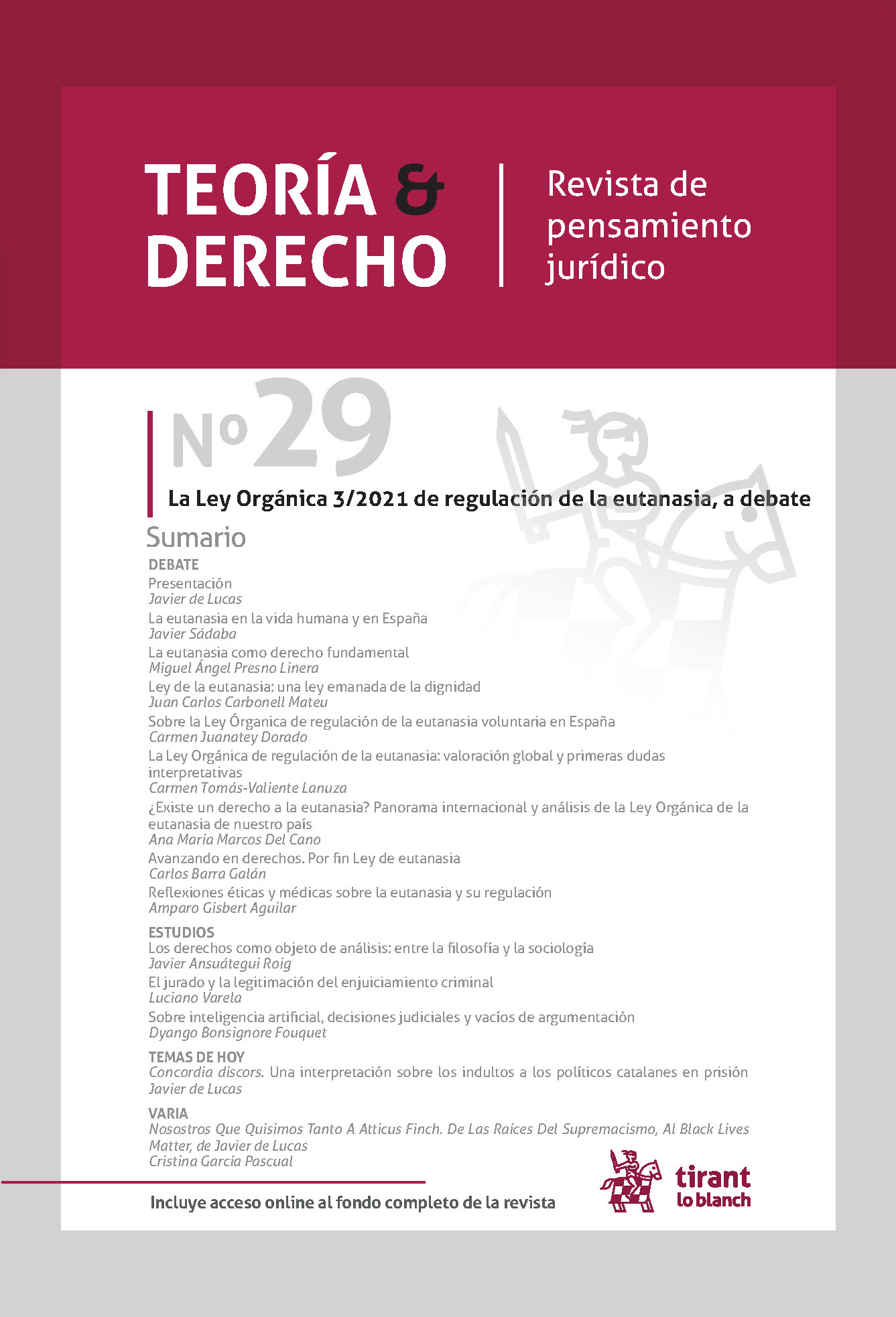The Jury and the Legitimization of Criminal Procedure
DOI:
https://doi.org/10.36151/td.2021.010Keywords:
jury, legitimization, criminal proceedingsAbstract
The approaching 25th anniversary of the reinstatement of the jury invites us to reflect on its purpose of democratic legitimization of criminal prosecution, of protecting the citizen against the exercise of the ius puniendi of the State, of recognizing the uncertainty of the accusation as a presupposition of the presumption of innocence and of the scope of the accusatory system as a method of elaboration of the decision on guilt. This function of guarantee will be correlated with the autonomy of the jurors when deliberating, with impartiality, the verdict. Concurring with the technical judge to the decision on the accusation from the heterogeneity of competences and the difference of responsibilities in the motivation of the sentence. But without substitution or complementation between the one and the other, but from the balance of powers. The attacks against the model of the LOTJ in some small doctrinal sector, but above all, in certain jurisprudential practice, favored the reduction of the protagonism of the elements most guaranteeing impartiality or of the advances in the intensification of the accusatory principle. The result has been a denaturalization of their function of guarantee entrusted by an already timid attribution of only negative control, of acceptance or rejection, never of substitution, of the decisions adopted by the technical elements of the court. Underlying this, sometimes undisguised, is the consideration that jurors have a natural incapacity for their function and that the technicians have an unquestionable capacity, without either of these being proven in practice.
Downloads





















